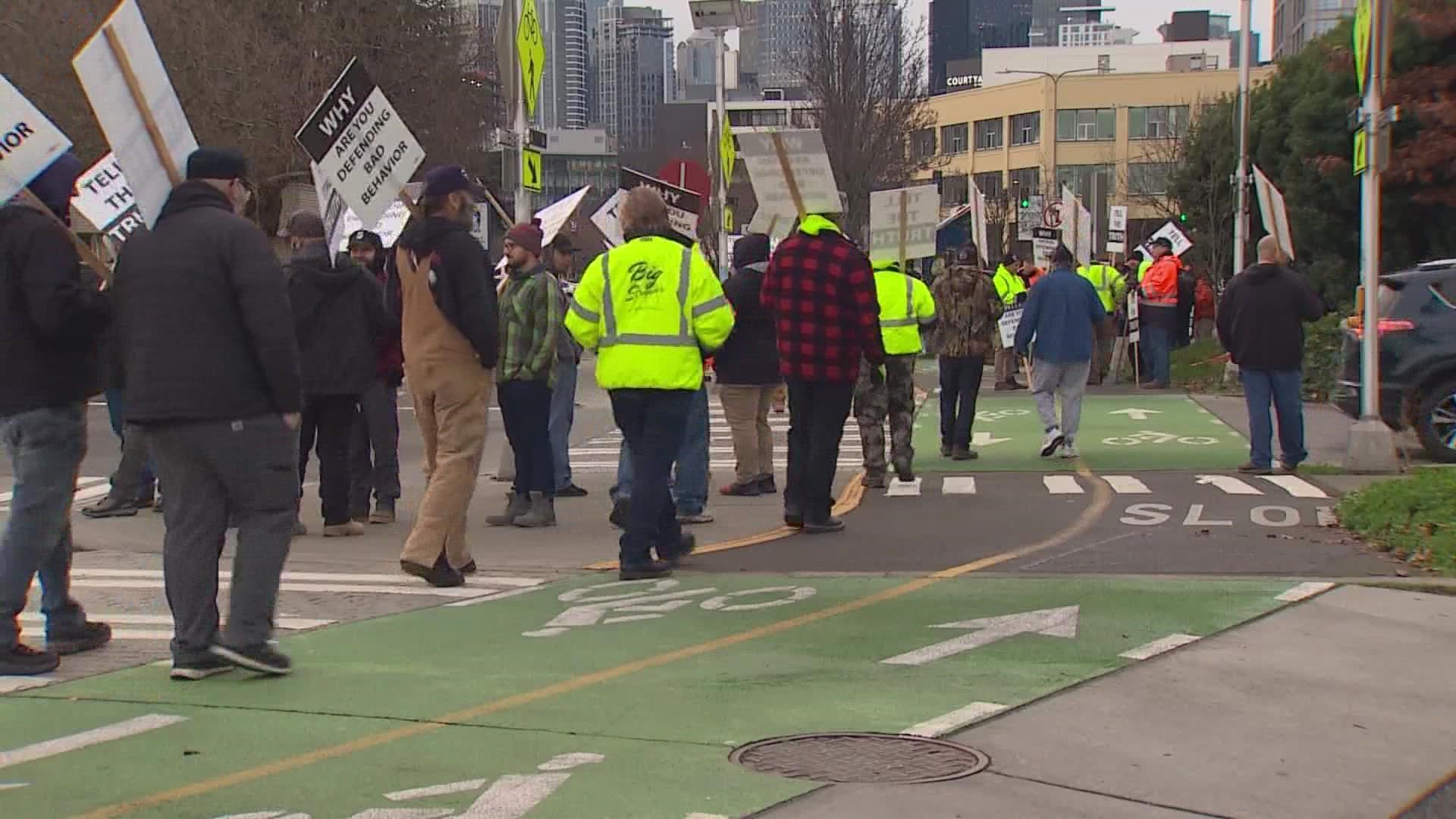SEATTLE — Executive Dow Constantine spoke before the King County Council Tuesday to discuss the next steps in dealing with what has become a debilitating standoff between local concrete workers and construction companies.
Constantine introduced legislation to study the possibility of the county and other local entities like Sound Transit and the Port of Seattle developing their own concrete manufacturing facilities.
The council voted 9-0 to study the idea.
Concrete workers have been on strike since Nov. 19, protesting what they say are unfair labor practices by the construction companies.
Negotiations between the two sides have stalled in recent weeks, with the union, Teamsters Local No. 174, saying the proposed package from the construction companies is less compared to what other workers are receiving. However, the four companies said in late January that they’d sent the “best package we have ever offered” with a “17.6% pay increase of the next three years.”
The study proposed by Constantine would analyze the possibility of a county-run concrete manufacturing facility. It will look at the potential costs, benefits, possible partners and any viable locations for the facility.
The study will also seek any opportunities for private companies to get involved in the project. The report will be due to the King County Council on Dec. 1.
"For the future of our infrastructure and our economy, the public sector must act to secure a reliable supply of concrete, even if that means manufacturing our own," said Constantine. "While this won’t solve the stalemate today, we will begin the work to ensure taxpayers aren’t put in this position again, and to keep our region moving forward."
The strike, which involves large local companies like Cadman Seattle, Lehigh Cement and Salmon Bay Sand & Gravel, has resulted in the delay of multiple projects that are highly important to the Seattle community and the entire county's infrastructure.
Repairs to the West Seattle Bridge, which has been closed for two years, will likely no longer be completed by mid-2022 after the strike continued past Feb. 20. As of late February, workers on the bridge said they still needed to get about 30 truckloads of concrete in place before they could install heavy cables.
"The many critical infrastructure projects on hold today, along with even more on the way, have cemented the need for reliable concrete production. New projects and major infrastructure investments are an opportunity to reshape our city and our region for the better -- further uncertainty driven by concrete manufacturing concerns cannot be allowed to derail this potential," Seattle Mayor Bruce Harrell said in a statement.
Also, the construction of a new psychiatric hospital at the University of Washington is at least six months behind schedule due to the strike. The seven-story structure would have 150 beds and serve “a growing number of patients suffering mental illness and substance abuse,” according to UW Medical Center CEO Cindy Hecker.
The strike has also postponed various private construction projects throughout the county.
Last week, the union decided to let workers return to some projects in order to “meet community needs.”
In an effort to get construction back on track, Constantine issued a Request for Qualifications in early February for concrete suppliers to sidestep the strike in order to ensure construction projects can continue for years to come.
The county said it received no proposals.

